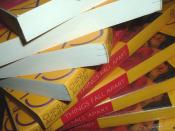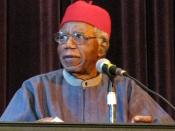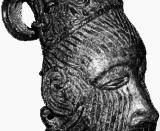Language is a great power which forms a huge part of people culture and identity, it's also enabling them to express themselves and keep their history. In colonized regions the issue of colonial and native language became the subject of discussion between critics. In relation Chinua Achebe "The African writer and the English Language" and Ngugi Wa Thiong'o "The Language of the African Literature" essays; I will discuss what do these two writers have in common and in what way they are different.
As we all know; Colonizing power is trying to control their colonies by cutting out their native languages and replace them with their own, so the colonizers realize the power of language, each language is heavily embodied with specific culture, religion, identity and history, so when these things are cutting off within the language, it will be easy for the colonizer to re-form the colony in any way they want.
At that time critics start to question "in what Language African Literature should be produced?" For Chinua Achebe replacing the native Language is not a problem "The African writer should aim to use English in away that brings out his message best without altering the Language to the extent that it's value. As a medium of international exchange will be lost , he should aim at fashioning out an English which is at once universal and able to carry his peculiar experience" (Chinua Achebe 433 ). Achebe believes that Language can be considered as a barrier between two cultures; in addition English is a universal Language which gives African writers more chance to spread their own ideas and culture to most parts of the world.
Achebe uses the English Language for the aim of universality. He wrote his novel "Things fall a part" in English to...


